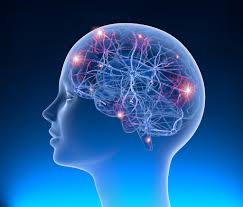
Breaking Stigma and Celebrating Strength: International Epilepsy Day Shines Light on Awareness and Achievements
Dr. Sowmya M, a Senior Consultant Neurologist at Aster RV Hospitals, announced that International Epilepsy Day is planned for February. This day aims to improve public awareness about epilepsy, reduce stigma, and support individuals and families living with the condition. This year's theme, "Milestones on My Epilepsy Journey," emphasizes personal achievements despite the challenges of epilepsy.
Epilepsy is a neurological disorder that causes sudden, abnormal electrical activity in the brain, leading to seizures. These can range from major seizures, where a person loses consciousness and has involuntary jerky movements, to minor seizures, where the person may remain partially conscious and experience symptoms like facial twitching or jerking of one body part. Epilepsy is diagnosed when a person has two or more unprovoked seizures.
In India, over 10 million people are affected by epilepsy, but many lack access to proper treatment, causing significant suffering for patients and their families.
Seizures can vary in type and intensity. Symptoms of an epileptic attack can include warning signs like visual disturbances or strange smells, temporary confusion, memory loss, difficulty speaking or understanding language, and uncontrollable movements of the body.
The causes of epilepsy are often unknown, but can include genetic factors, developmental conditions, brain injuries, infections, strokes, and other conditions. Identifying the underlying cause is important for appropriate treatment.
Epilepsy can lead to physical injuries from falls, psychological effects like anxiety and depression, cognitive impairments, and restrictions on driving. These impacts can affect a person's daily life, mental well-being, and independence.
Treatment for epilepsy typically involves anti-seizure medications (AEDs), which help control seizures by stabilizing brain activity. For the 30% of epilepsy cases that do not respond to medication, other treatments like neuromodulation and epilepsy surgeries are available. Surgical options may involve removing the seizure-causing brain area or implanting devices to regulate brain activity.
Vagus Nerve Stimulation (VNS) therapy and the ketogenic diet are other treatments that can help reduce seizure frequency. Lifestyle modifications, such as getting adequate sleep, managing stress, and avoiding seizure triggers, can also help manage epilepsy.